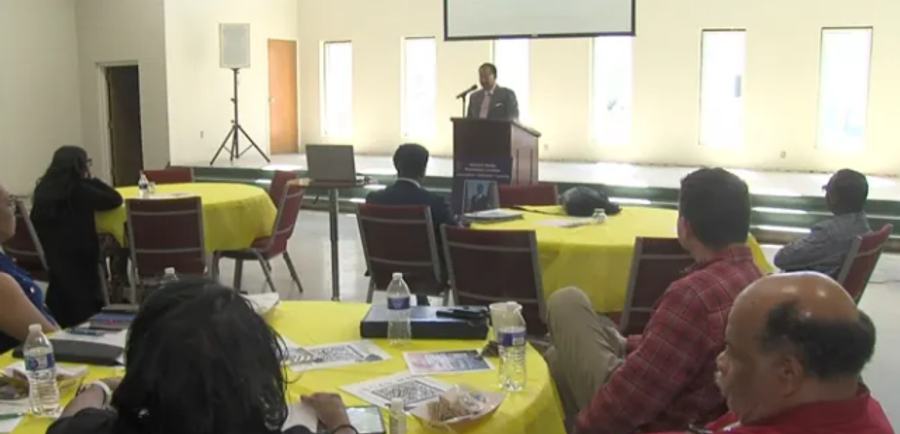
Officials have alerted homeowners to a fraud scheme targeting properties — and shared helpful tips on how to avoid becoming a victim.
The scam has already been recorded in at least 400 cases from property owners in several states over the last five years.
Criminals are using quitclaim deeds to steal property throughout the Mid-South, said Willie Brooks, the Register of Deeds of Shelby County, Tennessee.
Homeowners have been warned to protect themselves after at least 400 cases of quitclaim fraud were filed in the region.
Criminals are using quitclaim deeds to steal the right to a property, Willie Brooks, the Register of Deeds of Shelby County, Tennessee told local ABC affiliate WATN last month.
People in the Mid-South region — which includes Kentucky, Maryland, North Carolina, South Carolina, Tennessee, Virginia, and West Virginia — should beware of the scam.
Quitclaim deeds are legally used to transfer property ownership to another person, usually between family members.
Brooks said the fraudsters sometimes manipulate victims into signing the documents or simply forge their signatures.
And thieves can use the legal documents to quickly take possession of another person's property, sometimes without them knowing.
The scammers can then rent the home and receive the earnings, use it as collateral for a loan, or even sell it outright.
Senior citizens are common targets of quitclaim deed fraud because their health status may prevent them from living in their home full-time or overseeing its affairs.
People living in senior living communities are particularly vulnerable too.
Police have investigated cases of quitclaim deed schemes occurring in living facilities orchestrated by nursing home workers or other staff, Brooks said.
Despite the scam's widespread use, there's little victims can do after the documents are signed.
Beware the Scam: Protect Your Pockets from Fake Ticket Fraud
NO RECOURSE
Quitclaim deed fraud is just the latest type of scam targeting homeowners.
Fraud experts said that once a thief has submitted a signed quitclaim deed, it is very difficult for the rightful homeowner to correct the situation.
Quitclaim deeds are filed with the county register, many of which are required by law to process applications that contain the necessary information.
Battling a fraudulent deed can lead to a long and expensive court battle, with no guarantee of a positive outcome for the victim.
What is a quitclaim deed scam?
At least 400 cases of quitclaim deed fraud have been filed throughout the Mid-South. Here's how they work.
- Quitclaim deeds allow for quick and easy property transfers between individuals. Thieves can pressure people into signing the form or forge their signatures without their knowledge.
- Once the criminals have a signed deed, they can bring it to a county register that is often obligated to file the paperwork.
- When the document has been processed, the thief can quickly rent, mortgage, or sell the property without the rightful owner's knowledge.
HOW TO PROTECT YOURSELF
Fraud costs American consumers at least $10 billion a year, according to the Federal Trade Commission — and is not getting any better.
Homeowners can protect themselves from quitclaim deed scams by following some basic financial advice.
If you suspect fraud, check your property records at your county register to see if there are any deeds or loans you are unfamiliar with under your name.
Avoid transferring ownership of your property to a mortgage assistance company or similar business.
Regularly check your credit report for anomalies and report any errors immediately.
Don't forget to look into your insurance terms to see if you are protected against fraud.
Contact local or state authorities immediately if you think you have been the target of a scam.
Link: https://www.the-sun.com/news/11172111/warning-people-lost-homes-stolen-quitclaim-deeds/